SUMMARY
This is AI generated summarization, which may have errors. For context, always refer to the full article.
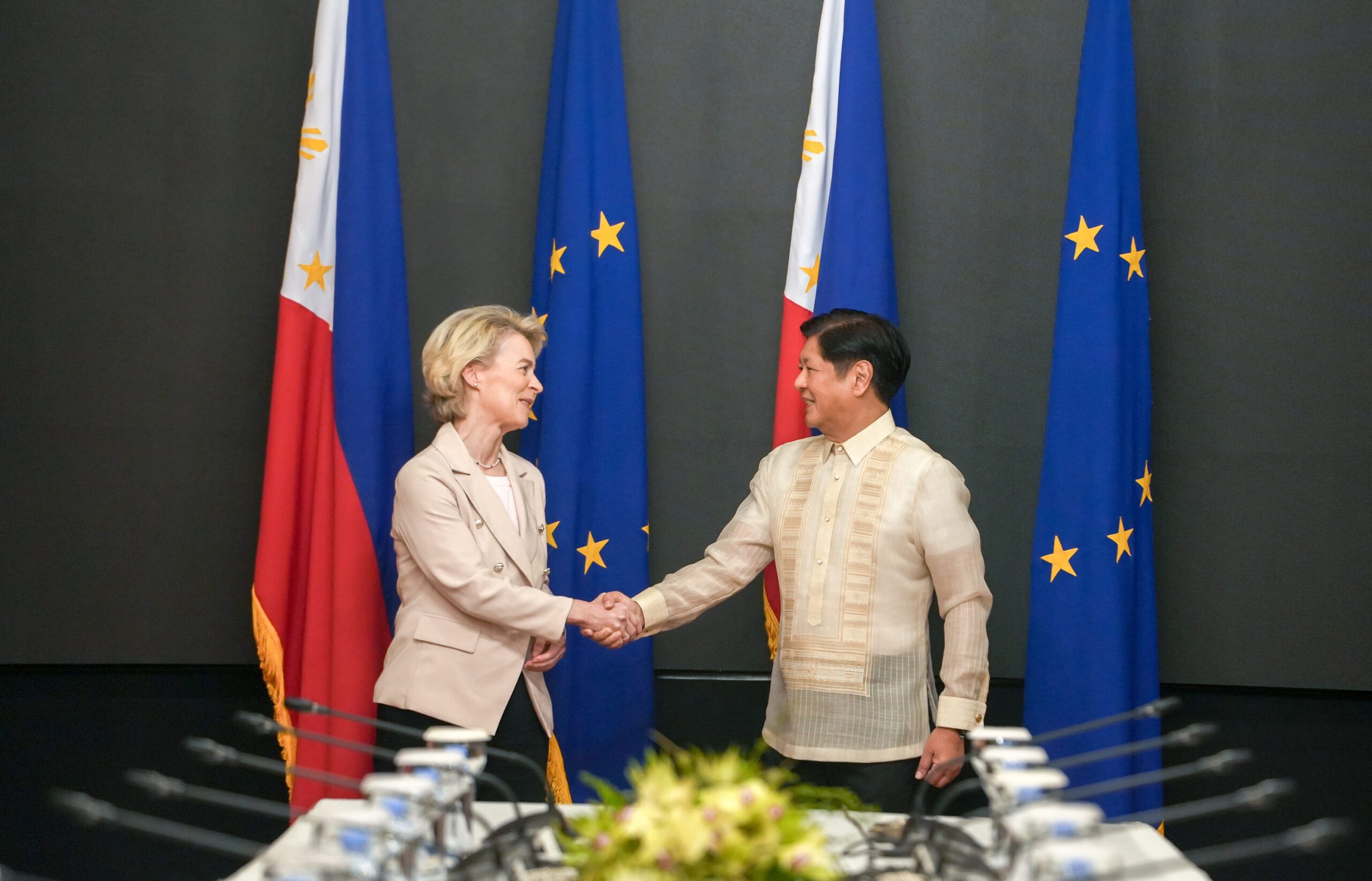
MANILA, Philippines – European Commission President Ursula von der Leyen promised to “accelerate a new era of cooperation,” including in maritime security, as she visited Malacañang for the first time on Monday, July 31.
Von der Leyen, who is in Manila for a three-day official visit, said the European Union (EU) would “strengthen cooperation…on maritime security” in the Indo-Pacific by “sharing information, conducting threat assessment, and building the capacity of [the Philippines’ Coast Watch] center and [the Philippine] Coast Guard.”
The European Union (EU) president’s pronouncements come as tensions in the region – especially in the resource-rich South China Sea – continue to escalate. China has claimed most of the sea despite a 2016 arbitral ruling from Manila’s challenge against Beijing.
Despite the ruling and despite Philippine efforts to minimize tension in the area, Chinese ships have continually harassed and tried to drive away other nations’ vessels, including the Philippines’.
The European Union, like many other key allies of the Philippines, are in support of the 2016 ruling.
“The European Union underlines that the 2016 award of the arbitral tribunal on the South China Sea is legally binding and that it provides the basis for peaceful resolving disputes between the parties,” said Von der Leyen on Monday.
Von der Leyen is the first EU president to pay an official visit to Manila, but this is her second time meeting President Ferdinand Marcos Jr. They first crossed paths in Brussels, Belgium, during the commemorative Association of Southeast Asian Nations-EU Summit back in December 2023.
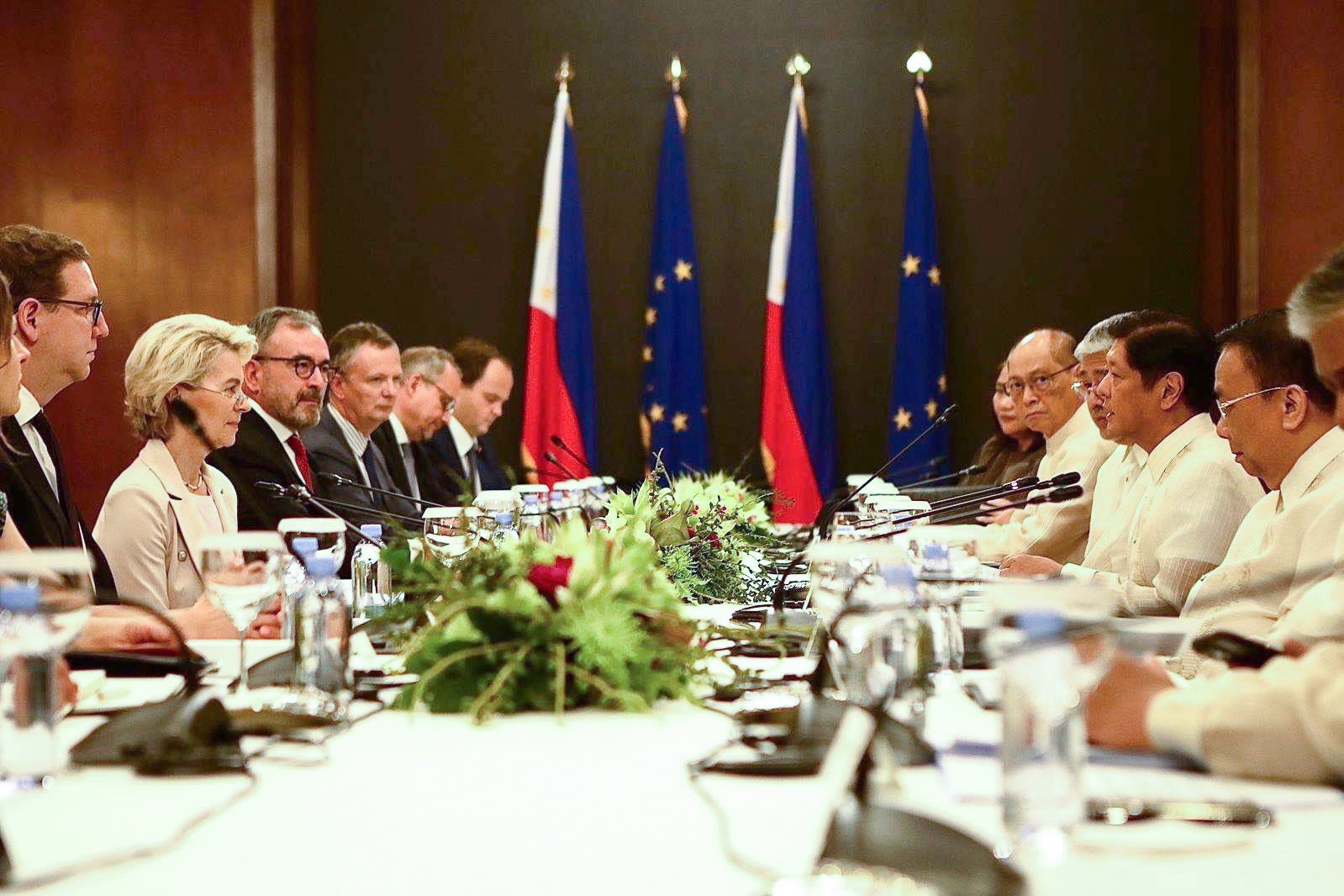
‘New ties’
When Von der Leyen and Marcos speak of newness in ties between Brussels and Manila, it’s not just diplomatic speak. Ties between the bloc and Manila turned tense under his predecessor, Rodrigo Duterte.
The former president lambasted the EU when it criticized his bloody war on drugs. More than once, the European Parliament also called on the European Commission to rescind the Philippines’ Generalised Scheme of Preferences Plus (GSP+) status on account of human rights violation concerns.
Marcos’ visit to Brussels in December 2022, said his cousin House Speaker Martin Romualdez, was the Philippines’ “reengagement” with the European bloc. Coated in Romualdez’s niceties then was an awkward truth: that under the Duterte administration – which Marcos was supposedly the continuation of – diplomats were constantly in “damage control” mode whenever the Davao mayor lambasted Western allies, including the EU.
Marcos has spent a bulk of his first year in power traveling, including to the EU and the United States, whose ties to the Philippines turned tense under Duterte.
“Let this be a new beginning for the strengthening and the deepening of all our ties with the EU and the Philippines,” said Marcos in a joint presser with Von der Leyen at the President’s Hall in Malacañang.
The EU has strong ties to the Philippines despite a delicate six years under Duterte. The EU is a major player in the Bangsamoro Peace Process and is the Philippines’ fourth-largest trading partner.

Green economy, trade
Despite a heavy downpour that forced arrival honors for Von der Leyen to move indoors, the Palace still pulled out all the stops for the visiting EU president.
Huge flower and plant arrangements adorned the interiors of the Palace. A youth music group played a rendition of “Wind of Change,” a ’90s power ballad that rose to prominence toward the end of the Cold War, to greet Von der Leyen upon her arrival.
According to the EU president, the following topics were agreed upon during the leaders’ bilateral meeting:
Resumption of Free Trade Agreement negotiations. Talks had been stalled for several years but rekindled under the Marcos administration. Trade Secretary Alfredo Pascual is spearheading these negotiations alongside talks for the renewal of the country’s GSP+ status.
Climate change cooperation. Von der Leyen brings to Manila the Global Gateway, the EU’s investment plan to support countries’ push for sustainable development, particularly in the transition to a circular economy and the generation of green energy.
The EU president also promised a data mirror site within the Philippine Space Agency to access information from the EU’s Copernicus satellite.
Digital Economy Package for the Philippines. Von der Leyen said this involves improving connectivity in the Philippines, including the “possible extension” of a submarine cable across the Arctic route to Japan. The EU is eyeing the Philippines as a touchpoint for that cable.
“That would give you a strategic position on an infrastructure that could be instrumental both to your prosperity and national security,” she said.
Mining, raw materials. “Critical raw materials,” said Von der Leyen, is key in the EU’s push for a “clean and digital future.”
“So let us start by identifying projects that would develop your local mining industry, supporting your communities, and that contribute to a secure global supply of critical raw materials,” she added.
Security. Describing the region’s geopolitics as “changing and volatile,” Von der Leyen promised a stronger cooperation through information sharing, threat assessments, and helping improve the Philippine Coast Guard.
What about human rights?
Yet following a bilateral meeting that lasted over an hour, there was no mention of one major issue: human rights in the Philippines, both under Duterte and now under Marcos.
While the leaders made mentions of “shared values” under a democracy, there was no talk of the past – of democracy under Duterte or the dark years under the President’s dictator father.
“Von der Leyen should have echoed, not forgotten, the many human rights concerns raised earlier this year by other EU institutions during visits to the Philippines. Nothing suggest she did,” Human Rights Watch’s senior EU advocate Claudio Francavilla said in an interview with Rappler.
Among Marcos’ key allies crucial to his 2022 win was Sara Duterte, the eldest daughter of the former president. Despite taking a different direction in foreign policy, Marcos has stuck by the former administration’s line in dealing with the International Criminal Court’s (ICC) probe into the killings under Duterte’s drug war.
Marcos has said before that if the ICC insists on its probe, the Philippines would be “disengaging from any contact” from the court. He’s also insisted before that human rights should be separate from trade perk negotiations.
But that’s not how the EU works – or should work, at least.
Following a March 2023 visit, EU special representative for human rights Eamon Gilmore said “doing business with the EU means addressing human rights issues.”
“Persisting impunity, red-tagging, jailing of opponents, refusal to cooperate with the [International Criminal Court] should all be serious obstacles to closer bilateral ties. Overlooking all of that in pursuit of a FTA would betray the EU’s own treaty commitments to use trade as a tool to promote human rights, as well as the trust that many Filipino activists, human rights defenders, and victims of abuses have placed on the EU’s efforts to support human rights progress in their country,” said Francavilla.
While Marcos and Von der Leyen faced the media in a press conference that was livestreamed via government channels, neither leader fielded questions from the media. – Rappler.com
Add a comment
How does this make you feel?


![[EDITORIAL] Diplomasya ni Rodrigo Duterte sa Tsina: Nakaluhod nang dikit ang noo sa lupa](https://www.rappler.com/tachyon/2024/05/animated-duterte-china-panatag-shoal-carousel.jpg?resize=257%2C257&crop_strategy=attention)
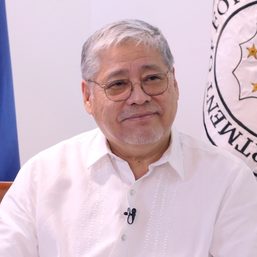
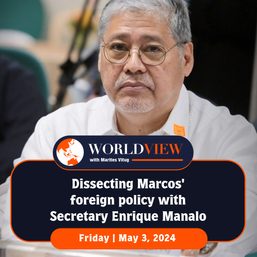
![[In This Economy] Marcos’ POGO ban is popular, but will it work?](https://www.rappler.com/tachyon/2024/07/thought-leaders-marcos-pogo-ban.jpg?resize=257%2C257&crop=255px%2C0px%2C720px%2C720px)
![[Rappler Investigates] POGOs no-go as Typhoon Carina exits](https://www.rappler.com/tachyon/2024/07/newsletter-graphics-carina-pogo.jpg?resize=257%2C257&crop=424px%2C0px%2C1080px%2C1080px)




![[OPINION] Expectations for Philippines-US-Japan trilateral cooperation: A view from Japan](https://www.rappler.com/tachyon/2024/04/tl-ph-usa-jp-cooperation.jpg?resize=257%2C257&crop=447px%2C0px%2C1080px%2C1080px)
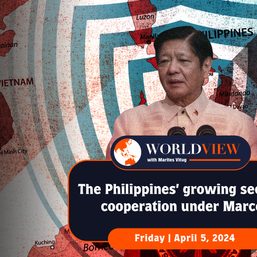
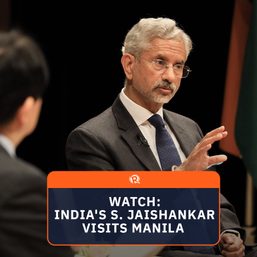
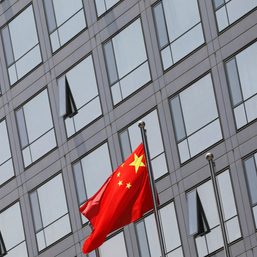
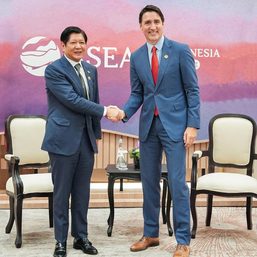
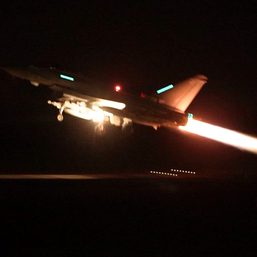
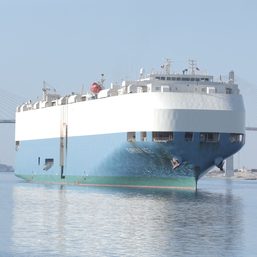
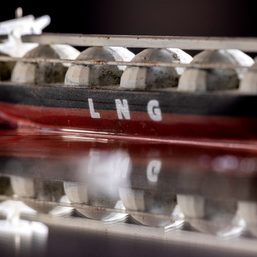



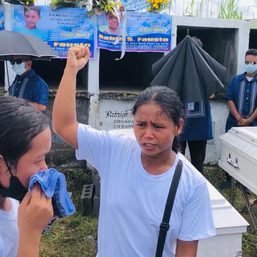






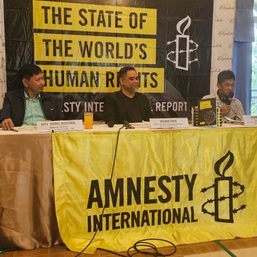
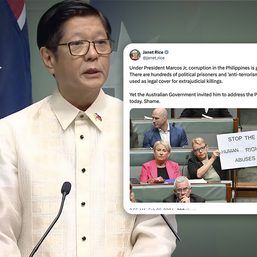
![[OPINION] In the Philippines, the fight for the climate is a fight against state violence](https://www.rappler.com/tachyon/2024/02/imho-contexualizing-state-violence.jpg?resize=257%2C257&crop=265px%2C0px%2C720px%2C720px)
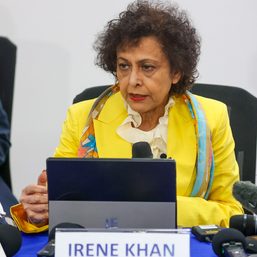
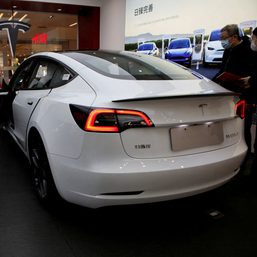
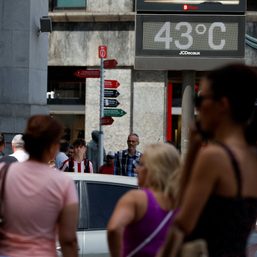
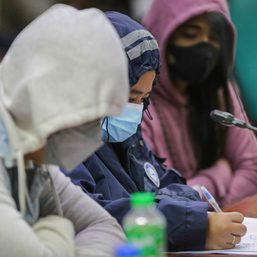


![[Just Saying] SONA 2024: Some disturbing points](https://www.rappler.com/tachyon/2024/07/TL-marcos-sona-points-july-23-2024.jpg?resize=257%2C257&crop=335px%2C0px%2C720px%2C720px)




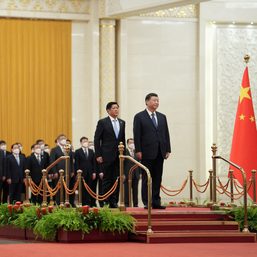

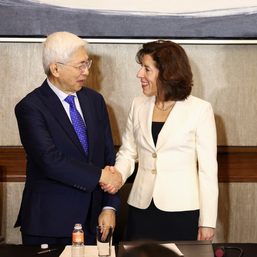
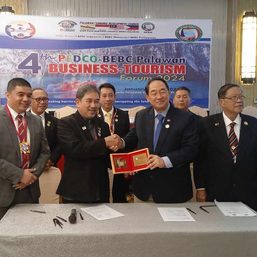
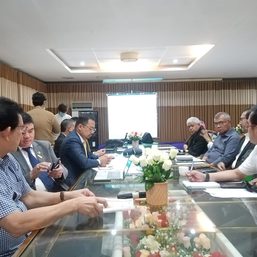
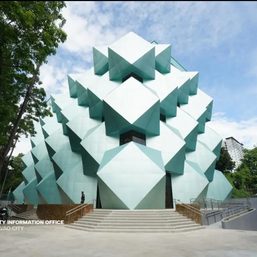
There are no comments yet. Add your comment to start the conversation.